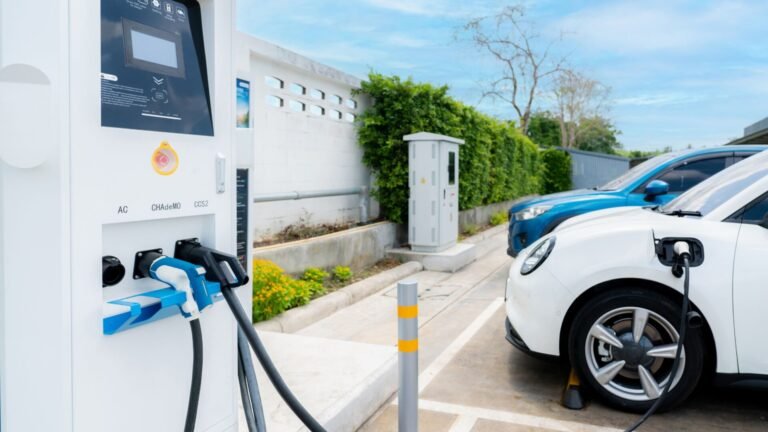In recent years, Europe has been making significant strides towards achieving energy independence, and solar energy has emerged as a pivotal player in this transition.
As countries across the continent aim to reduce their reliance on fossil fuels and external energy sources, solar energy in Europe has become a beacon of hope.
This shift is driven by a combination of factors, including technological advancements, supportive policies, and a growing public awareness of environmental issues.
Solar energy not only offers a sustainable and renewable energy source but also provides economic benefits through job creation and reduced energy costs.
This blog delves into the growing importance of solar energy in Europe, highlighting its potential to reshape the continent’s energy landscape and secure a more sustainable future.
By understanding the current trends, challenges, and opportunities in the solar energy sector, we can appreciate the critical role it plays in Europe’s journey towards energy independence and environmental stewardship.
The Rise of Solar Energy in Europe
Solar energy in Europe has experienced remarkable growth over the past decade. Driven by a combination of technological advancements, favorable policies, and increasing environmental awareness, the adoption of solar power has surged.
According to recent reports, Europe added more than 20 GW of solar capacity in 2023 alone, with countries like Germany, Spain, and the Netherlands leading the charge.
The European Union has set ambitious renewable energy targets as part of its Green Deal, aiming to achieve climate neutrality by 2050.
Solar energy plays a crucial role in this plan, with the EU aiming to install at least 600 GW of solar capacity by 2030. This commitment underscores the importance of solar energy in Europe’s quest for energy independence.
Advantages of Solar Energy in Europe
One of the primary advantages of solar energy in Europe is its abundance and accessibility. Europe receives ample sunlight, especially in southern regions, making it an ideal location for harnessing solar power.
Additionally, the cost of solar panels has decreased significantly, making solar energy more affordable and accessible to both residential and commercial consumers.
Solar energy in Europe also offers environmental benefits. By reducing reliance on fossil fuels, solar power helps decrease greenhouse gas emissions and combat climate change.
This aligns with Europe’s broader sustainability goals and its commitment to the Paris Agreement.
Moreover, solar energy in Europe contributes to energy security. By generating electricity locally, countries can reduce their dependence on imported energy sources, which are often subject to geopolitical tensions and price fluctuations.
This shift towards renewable energy enhances Europe’s resilience and stability in the face of global energy challenges.
Solar Energy Initiatives Across Europe
Several European countries have launched innovative initiatives to promote solar energy adoption. Germany, known as the solar powerhouse of Europe, has implemented the Renewable Energy Sources Act, which provides financial incentives for solar installations.
As a result, Germany boasts over 59 GW of installed solar capacity, making it a leader in solar energy in Europe.
Spain has also made significant progress in the solar sector. The country’s favorable climate and supportive policies have spurred a solar boom, with Spain adding over 5 GW of solar capacity in 2023.
Additionally, the Spanish government has introduced measures to streamline the permitting process for solar projects, further accelerating growth.
The Netherlands, despite its relatively small size, has emerged as a major player in solar energy in Europe. The country’s Solar Energy Program aims to achieve 35 GW of solar capacity by 2030.
The Netherlands has embraced innovative approaches such as floating solar farms and solar panels integrated into infrastructure, demonstrating its commitment to renewable energy.
Challenges and Opportunities
While the growth of solar energy in Europe is promising, several challenges remain. One of the primary obstacles is the intermittency of solar power.
Since solar energy generation depends on sunlight, it can be inconsistent, especially in northern regions with fewer sunny days.
To address this, Europe is investing in energy storage solutions and grid modernization to ensure a stable and reliable energy supply.
Another challenge is the initial cost of solar installations. Although the cost of solar panels has decreased, the upfront investment can still be a barrier for some consumers.
However, various financing options, subsidies, and incentives are available to mitigate this issue and encourage wider adoption of solar energy in Europe.
On the flip side, the growth of solar energy in Europe presents numerous opportunities. The renewable energy sector is a significant job creator, offering employment opportunities in manufacturing, installation, maintenance, and research.
By investing in solar energy, Europe can stimulate economic growth and create a sustainable future for its citizens.
The Future of Solar Energy in Europe
The future of solar energy in Europe looks bright. With continuous advancements in solar technology, the efficiency and affordability of solar panels are expected to improve further.
Innovations such as bifacial panels, which capture sunlight on both sides, and perovskite solar cells, which offer higher efficiency rates, are set to revolutionize the industry.
Moreover, the integration of solar energy with other renewable sources, such as wind and hydro, will enhance Europe’s overall energy mix.
By diversifying its energy portfolio, Europe can achieve a more resilient and sustainable energy system.
Policies and regulations will play a crucial role in shaping the future of solar energy in Europe. Continued support from governments and the EU is essential to maintain momentum and drive further growth.
The implementation of clear and consistent policies, coupled with financial incentives, will encourage investments in solar energy and accelerate the transition towards a renewable energy future.
Case Studies: Successful Solar Energy Projects in Europe
Solar Power Europe’s “Solar Rooftops Initiative”
The “Solar Rooftops Initiative” by Solar Power Europe aims to harness the untapped potential of rooftop solar installations across the continent.
By focusing on residential, commercial, and public buildings, this initiative seeks to install solar panels on rooftops, contributing significantly to solar energy in Europe.
The initiative not only enhances energy independence but also promotes decentralized energy generation, reducing the strain on national grids.
Germany’s Solar Valley
Germany’s Solar Valley, located in the eastern part of the country, is a testament to the successful integration of solar energy in Europe.
This region is home to numerous solar manufacturing companies, research institutions, and solar farms. The collaboration between the public and private sectors has transformed Solar Valley into a hub of innovation and sustainability, showcasing the potential of solar energy in Europe.
Spain’s Solar Mega-Projects
Spain has embarked on several large-scale solar projects, solidifying its position as a leader in solar energy in Europe.
Projects like the Núñez de Balboa solar plant, one of the largest in Europe, demonstrate Spain’s commitment to renewable energy. With an installed capacity of 500 MW, this solar plant powers hundreds of thousands of homes, reducing carbon emissions and enhancing energy security.
The Role of Individuals and Businesses
Individuals and businesses play a vital role in the growth of solar energy in Europe. Homeowners can contribute by installing solar panels on their rooftops, generating clean energy and reducing their carbon footprint.
Many countries offer incentives and subsidies to make residential solar installations more affordable and attractive.
Businesses, too, can benefit from adopting solar energy. By integrating solar power into their operations, companies can reduce energy costs, enhance their sustainability credentials, and contribute to Europe’s energy independence.
Corporate social responsibility initiatives that prioritize renewable energy can also boost a company’s reputation and attract environmentally conscious consumers.
Conclusion
Solar energy in Europe is not just a trend; it is a transformative force driving the continent towards energy independence and sustainability.
With abundant sunlight, technological advancements, and supportive policies, Europe is well-positioned to lead the global transition to renewable energy.
The benefits of solar energy extend beyond environmental sustainability, offering economic growth, job creation, and enhanced energy security.
As Europe continues to embrace solar energy, it is essential for governments, businesses, and individuals to collaborate and invest in this renewable resource. By doing so, Europe can pave the way for a cleaner, greener, and more independent energy future.
In summary, the role of solar energy in Europe cannot be overstated. It is a critical component of the continent’s energy strategy, providing a sustainable solution to the challenges of climate change and energy dependence.
As solar energy in Europe continues to grow, it will undoubtedly shape the future of energy, ensuring a brighter and more sustainable future for all.






